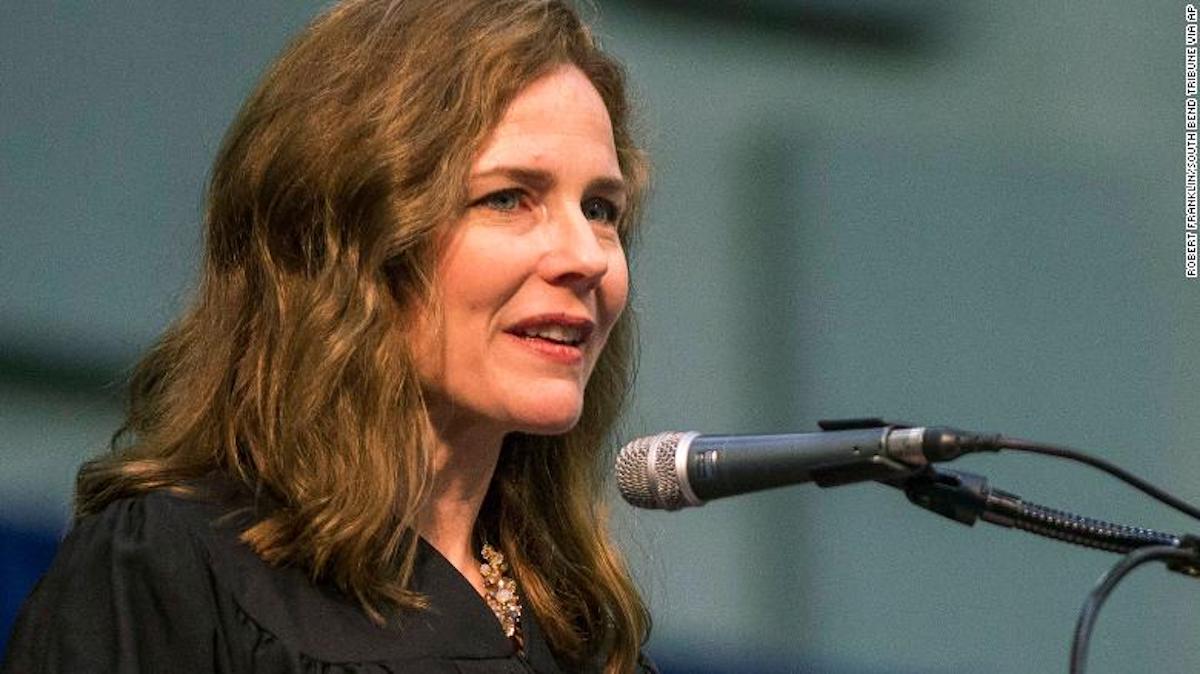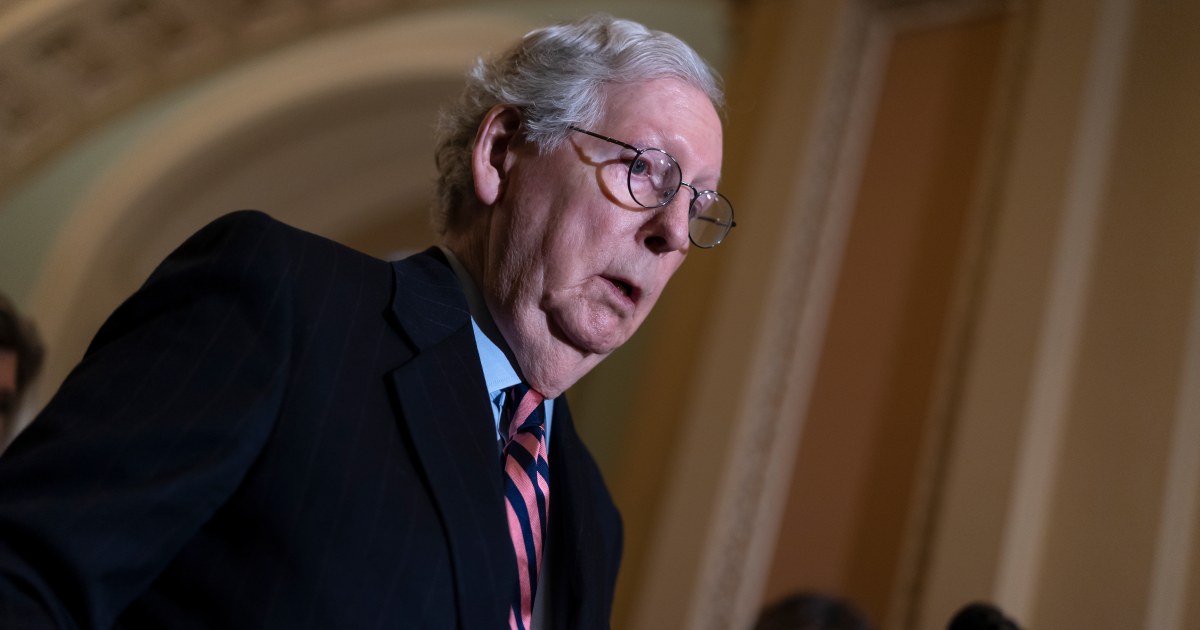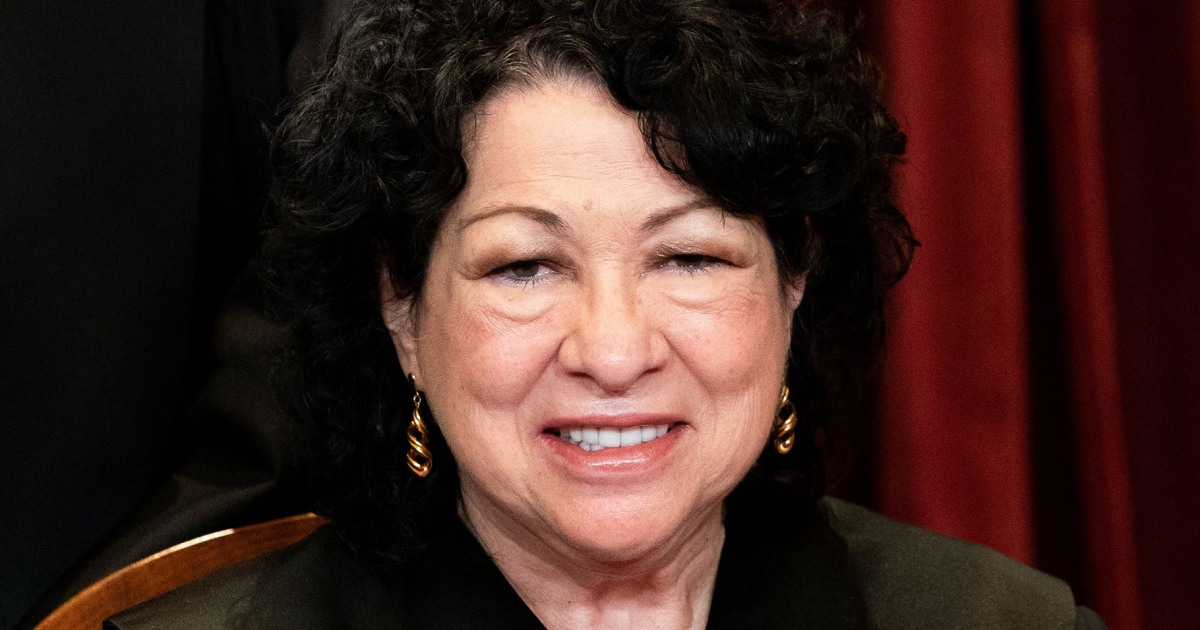Who is Amy Coney Barrett?
4:20
(CNN) -
Amy Coney Barrett's expedited confirmation before the Supreme Court begins in the Senate Judiciary Committee on Monday as the raucous fight for Barrett's nomination spills out into the public eye during a week of hearings.
The hearings represent the Democrats' best chance to poke holes in Barrett's record.
Also to try to sow doubts in the Republicans about the candidate of President Donald Trump.
Or if that's not possible, at least score political points on health care three weeks before the election.
The stakes are high for a surprise confirmation fight after the death of Judge Ruth Bader Ginsburg that has the potential to change the ideological makeup of the court for a generation, and tensions are running high on all sides.
But as the recent coronavirus outbreak in the White House shows, which infected two members of the Judiciary Commission, putting the confirmation process into question, the swift timeline Republicans have laid out leaves little room for error.
No one can challenge Amy Coney Barrett in an election case involving Trump, except herself
Trump Appoints Amy Coney Barrett to US Supreme Court 7:51
For Republicans, a smooth hearing will put Barrett on the glide path to be confirmed before Election Day over fierce objections from Democrats, who accuse the Republican Party is using a double standard after refusing to consider the candidate. of President Barack Obama in 2016.
Opening statements from the senators and Barrett are scheduled for Monday.
Lawmakers will question Barrett on Tuesday and Wednesday.
Outside witnesses for and against the nominee will testify Thursday.
Here's what to watch out for during hearings this week.
The possibility of a surprise in October
If the Senate voted on Barrett's nomination this week, she would have the votes for the Supreme Court.
Republicans have a 53-47 majority.
While two Republicans, Senators Susan Collins of Maine and Lisa Murkowski of Alaska, say they oppose confirming a Supreme Court candidate this close to an election, all other Republicans appear to be lining up to support Barrett.
No Democrat is considering backing it.
But that doesn't mean there aren't any unforeseen surprises in his nomination, either because of his track record or because of this week's hearings.
Republicans in the White House and Senate are rushing Barrett's nomination to the finish line before Election Day, a timeline that leaves little room for maneuver.
As a result, the investigation process was sped up and, in some cases, incomplete.
CNN's KFile reported Friday that Barrett failed to disclose two talks he gave in 2013 organized by two anti-abortion student groups on paperwork provided to the Senate.
After the story was published, the Senate Judiciary Committee released a supplemental update to the commission questionnaire for Barrett that included the conference and seminar, as well as a paid advertisement that she signed criticizing Roe v.
Wade and reaffirmed support for "Notre Dame's commitment to the right to life."
The missing speeches are not likely to change any Republican's mind.
But it leaves open the possibility that more could emerge: Both Republicans and Democrats still have the 2018 battle royal over Judge Brett Kavanaugh's confirmation etched into their memories.
They go to a ceremony at the White House and test positive for covid-19 1:27
The coronavirus factor
Two of the Republicans on the Judiciary Commission, Thom Tillis of North Carolina and Mike Lee of Utah, tested positive for coronavirus after attending the Barrett's Rose Garden announcement late last month, and a third Senator Ron Johnson of Wisconsin gave positive shortly after.
The trio of positives questioned what appeared to be a smooth confirmation.
The chairman of the Judiciary Commission, Lindsey Graham, did not alter the schedule for the hearings, which begin this week and could have Barrett confirmed by the end of the month.
However, senators can virtually attend Barrett's confirmation hearings.
Tillis said last week in a Fox News interview that he expected to appear virtually Monday and then in person when question-and-answer sessions begin Tuesday.
Still, the infections that spread through the White House and Republican circles, and to Trump himself, are a reminder that Republicans' time could change if more senators test positive.
Graham, in particular, would not be tested for coronavirus before his Senate debate that was scheduled for Friday.
The South Carolina Republican argued that his opponent, Democrat James Harrison, was trying to change the rules.
But Graham's critics pointed out that he didn't want to test positive with this week's hearings looming, as the president's absence would almost certainly end the possibility of a Senate confirmation vote before Nov. 3.
Democrats fight for a second chance for Obamacare
Even if Democrats are fighting a losing battle to stop Barrett's confirmation, the public attention at Supreme Court hearings gives them a chance to push forward a message about the healthcare program that helped them win the House in 2018, and they hope it will help them win back the Senate and the White House next month.
The Supreme Court will hear a challenge to the Affordable Care Act a week after the election in a case brought by Republican state attorneys general and the Trump administration, meaning Barrett could hear the case.
Democrats say the case threatens the care of millions of Americans with pre-existing conditions, a popular protection included in the Affordable Care Act.
A CNN poll released earlier this month found that 57% of Americans surveyed are now in favor of Obamacare (up from 50% in 2017), and that 61% do not want the Supreme Court to overturn it.
Barrett, then a law professor at the University of Notre Dame, wrote in a 2017 law review essay criticizing the way Chief Justice John Roberts saved the Affordable Care Act in 2012.
Chief Justice Roberts pushed the Affordable Care Act beyond its plausible meaning of saving the statute.
He interpreted the penalty imposed on those who did not have health insurance as a tax, which allowed him to uphold the statute as a valid exercise of the tax authority.
And he continued: "If I had treated the payment as the statute did, as a fine, I would have had to invalidate the statute because it was beyond the commercial power of Congress."
While Trump has claimed he will protect pre-existing conditions, he has not come up with any plans to do so despite months of promises that a health care plan will arrive at any moment.
Abortion
Democrats are also likely to use the hearings to highlight the threat they believe Barrett's nomination for abortion rights poses.
Trump has vowed to nominate judges to overturn the landmark Roe vs.
Wade.
But when the Democratic presidential candidate argued that Barrett would take away her abortion rights in last month's debate, Trump responded: “You don't know your opinion on Roe v.
Wade ».
Even if the Supreme Court does not annul Roe v.
Wade, both his supporters and his detractors say it is clear that his confirmation would consolidate a conservative majority on the Supreme Court to limit access to abortion.
While Democrats will pressure Barrett to speak out on the health care plan and abortion from every angle they can imagine, it is unlikely that she would say much about how she would speak out in such cases, just like the nominees before her. they have avoided doing so.
Barrett's faith
When Barrett appeared before the Judiciary Committee during his 2017 confirmation for a seat on the federal appeals court, the top Democrat on the panel, Sen. Dianne Feinstein, told Barrett, "the dogma lives loudly within you."
That statement has been resurfaced by Republicans and Democrats alike ahead of confirmation hearings, and Republicans have been quick to attack Democrats for persecuting Barrett's Catholic faith.
Republicans have been beating up Democrats over criticism of Barrett's religion in the lead up to the hearings, including Vice President Mike Pence criticizing Sen. Kamala Harris, a member of the Judiciary Commission, in last week's vice presidential debate.
"The ongoing attacks by Senate Democrats and the media against Judge Barrett's faith are a disgrace," Senate Majority Leader Mitch McConnell tweeted last week.
Democrats on the committee say they want to steer clear of questions about whether Barrett's devout Catholic faith will affect his views, focusing instead on issues they hope will resonate with voters.
Democrats are aware of the fact that the Kavanaugh confirmation fight in the run-up to the 2018 midterm elections affected several Senate Democrats in Republican states, and they want to prevent Republicans from having trouble with Senate control in play next month.
The challenge question
If Barrett is nominated to the Supreme Court before Election Day, it means that she could be on the stand when the superior court hears a potential case that decides the electoral fate of the president who nominated her.
Democrats have demanded that Barrett refrain from any election-related cases involving the presidency, given how close she was to the 2020 election.
Trump has already linked Barrett's swift confirmation to the possibility of the Supreme Court playing a role in the 2020 election, which has falsely claimed that it will be tampered with or stolen.
"I think this will end up in the Supreme Court," Trump said of the election last month.
"And I think it is very important that we have nine judges."
This week's hearings will give Democrats an opportunity to publicly seek their commitment not to get involved in election disputes.
But in the end, the question of recusal would rest solely with Barrett herself.
And they are unlikely to succeed.
"I specifically asked him to recuse himself," Sen. Chris Coons, a Delaware Democrat, said last week after speaking with Barrett.
"She did not commit to the challenge."
- CNN's Vogue's Manu Raju, Lauren Fox, Ted Barrett, Phil Mattingly, Clare Foran, Joan Biskupic and Ariane contributed to this report.
Amy coney barrett



/cloudfront-eu-central-1.images.arcpublishing.com/prisa/OWZ46IC2URACHO3QA7VMH4RKLI.jpg)




